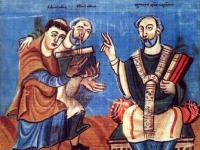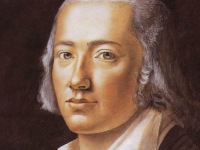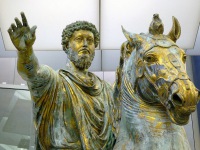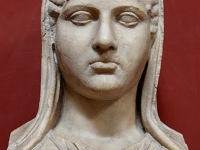Yamamoto Tsunetomo and the Way of the Samurai
On June 12, 1659 (other sources report June 11, 1659 – according to the Julian calendar July 13), Japanese Samurai Yamamoto Tsunetomo was born. He is best known for the publication of his compiled commentaries and aphorisms about the life of the Samurai under the title of Hagakure, a word that can be translated as either In the shadow the Leaves or The Hidden Leaves. “Above all, the Way of the Samurai…
Read more











